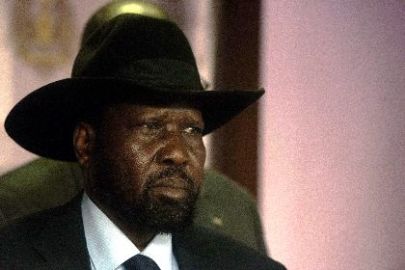SPLM-IO says ‘armed resistance’ imposed on them by President Kiir
September 26, 2016 (JUBA) – South Sudanese armed opposition faction, the SPLM-IO, said their recently declared armed resistance against President Salva Kiir’s regime has been imposed on them by the ongoing political and security situations across the country due to the collapse of the August 2015 peace agreement.

“The armed resistance is an alternative response to the situation,” he said.
He said if Kiir and his regime will not back down and rectify the situation, the armed opposition will “soon” be forced to “use all means necessary in order to restore peace, make reforms and move the country forward.”
The opposition leader’s spokesman however pointed out that in case President Kiir returns to the agreement by undoing the “wrong decisions he made” including to stop the ongoing military offensive, make Taban Deng step down as first vice president, demilitarize the capital, Juba, and other major towns as well as accept the proposed rapid deployment of a third party force in the capital, the agreement can be “resuscitated.”
He said the SPLM-IO has always been committed to the implementation of the peace agreement, arguing that this was indicated by the fact that their leadership returned to Juba with a small number of forces with only light weapons in April this year, hoping the war had ended and the agreement was to be fully implemented without any violations.
Dak said the opposition will not allow the country to be held hostage, kept at the stone age with ever suffering people despite its independence which also resulted from the sacrifices of millions of lives lost in order to achieve it.
He said “Kiir’s conspiracy” with Taban Deng is to make sure that the president’s pronounced “reservations” when he signed the agreement on 26 August 2015 in Juba are reinserted into the agreement and scrap all the vital provisions on various reforms and to continue looting the country with millions more suffering and “rotting” for many more years and even generations to come.
Examples of the trend towards scrapping the agreement, he said, include the surrender to Kiir’s faction by the “illegal” first vice president, surrender of the selection of transitional speaker for the national parliament to Kiir’s faction in order to avoid reform laws, the call to reintegrate forces without security sector reform implementation first as well as the maintenance of the 28 controversial states against the peace deal.
Dak claimed that the current regime under President Kiir is a one faction body of “killers and looters” and cannot implement the peace agreement or claim to be a unity government without the SPLM-IO which signed the agreement and initiated the reforms.
He said allowing the status quo to continue means millions more will continue to die and suffer from the hands of President Kiir and his “partners in crime.”
“This endless suffering of our people should be brought to an end so that the survivors can join the nations of the world whose peoples enjoy safe, decent and prosperous lives, and for generations to come,” he said.
The highest executive political organ of the opposition faction came up with the recent resolution to organize for an armed resistance during its meeting convened in the Sudanese capital, Khartoum, from 20-23 September, under the chairmanship of Machar.
It was the first official response to the crisis which erupted on 8 July and forced Machar out of the capital.
(ST)
